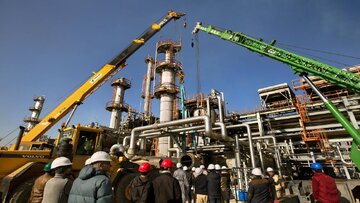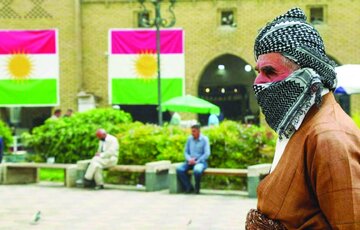Imam Moussa al Sadr was a Lebanese Shiite religious and political leader who came from Iran to Lebanon. He was born in Qom, Iran, in 1928 to a prominent Lebanese family of theologians (Sadr ). In 1956, he got a degree in Islamic jurisprudence and Political Sciences from Tehran University. Later on, he went to the center of Shiite theological thinking, Najaf to study. In 1960, he accepted an invitation to become a leading figure in the Lebanese city of Tyre. In 1969, he was appointed as the first head of the Supreme Islamic Shiite Council. Imam al Sadr was quickly involved in Lebanese politics. Parallel to that, the Palestinian case inside the Lebanese territories was mounting. His activities in Tyre exceeded clerical activities. They included social services in their contemporary aspect, as he believed in the values of human beings and their freedom, dignity and prosperity of the dimensions of their personalities, for that was the way to amelioration. He visited deprived areas and lived the average living worry. He built relations with all, he lectured in churches, mosques, universities and associations about denouncing sectarianism by labeling religions as one in the origin, goal and destiny… After the civil war erupted in Lebanon, he toured Arab countries to find a way out of the crisis. He made a visit to Lybia on August 25, 1978 accompanied by Sheikh Mohammed Yacoub and a reporter named Abbas Badreddine, never to return to the country. Many people accused the Lybian President Muammar al Qaddafhi of kidnapping the imam. Founder of a Party On the 18th of March, 1974, and following a series of demonstrations he led to protest against the government’s negligence of the rural areas, the Imam founded the “Movement of the Deprived” that adopted the slogan of continuous struggle until there are no deprived people left in Lebanon. During the civil war, he founded the Amal Movement the “Brigades of the Lebanese Resistance”, the military wing of the movement of the Deprived which fought alongside the Lebanese National Movement and the Palestinian Resistance. He was distinguished among all of his contemporary spiritual and political leaders for his openness especially towards Christians. He co-founded the Social Movement with the Catholic Archbishop Gregoire Haddad in 1960, participating in the Islamic-Christian dialogue in 1962, and lectured in a Capuchin Christian Church during an Easter Fast in 1964. When he founded Amal, it was sure that the party was representing the basic platform of the Shiite community in Lebanon. Whatever the Supreme Islamic Council says, Amal abides by it. Al Sadr’s explanation for the founding of the party resides in the fact that it was carrying arms against Israel until the Southern part of Lebanon is liberated. Imam al Sadr put the stress on an important point clarifying that all Lebanese Shiites must understand that Lebanon is their final refugee place where they should take shelter from any possible foreign aggressions, therefore, Lebanon is a patriotic end for all Lebanese Shiites. He thought that all Lebanese Shiites should be satisified with Lebanon as their final state, and refrain from looking to an Islamic state. This explains al Sadr’s enthusiasm to express his Lebanese identity in the middle of chaos in a country that was prepared to begin a civil war. We need Him Everybody in Lebanon asks: Do we need a savior to get rid of all crises in the country? Imam al Sadr’s travel to Lybia was really long. He did not return yet, however, his plan was broad and it encompassed hopes for a better country. If Imam al Sadr went before being able to say a final word, that is because his message for the Lebanese people was clear: “Lebanon is for all its people”and equally. Some scholars thought that Imam al Sadr came to Lebanon in order to find a Muslim Republic like the Iranian example on the Lebanese soil, but that was not the case. Al Sadr was clear with Yassir Arafat when he told him that al Quds ( Jerusalem ), needs to be liberated from the inside and not the outside. He was clear with many figures and this is why he paid the price. Imam al Sadr went and Lebanon was on the verge of finding solutions with his presence. He thought that all sects in Lebanon should coexist so that no internal conflicts are provoked and the country is saved from all its malaise. The Shiite community lost a leader. Some would like to compare Hizbullah’s Chairman Sayyed Hassan Nasrallah with al Sadr. Al Sadr was a modest man and a national one. He fasted for days calling for the sopping of the civil war in Al Amliyyeh Mosque, Ras al Nabaá. However, the forces of evil pushed the country for an internal strife and Lebanon paid a heavy price for that. /106




